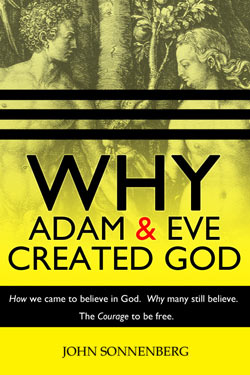Chapter 26 – God Exists
This is where the mistakes begin. The God I am discussing here is the God of the Jews, Christians, and Muslims. Not the hidden away, absent, and abstract First Cause of the twentieth century, but the God in the holy books. Yahweh. Jesus. Allah. The Lord God Almighty. This is the God who does miracles, answers prayers, and cares about people. All theistic religions start out by assuming this kind of God exists. They offer no satisfying proof, but simply assume God is. Likewise, most believers in God simply assume(or hope) that He exists. They have never met him, but for many reasons, they believe in him. No experiment can be made to verify His presence, but the faithful are certain he is around somewhere. No religion can demonstrate any hard evidence of Him, but they all claim to be substantiated by the evidence. The Bible and Quran presuppose His existence and are most often cite as proof that there is a God. These may be the most influential books on earth but to those of us who understand their origins, and won’t blindly accept them a divine, we must look outside of them to unbiased sources to validate the notion of God.
This is only a short summary of this topic. To find out more, please get Why Adam and Eve Created God.
